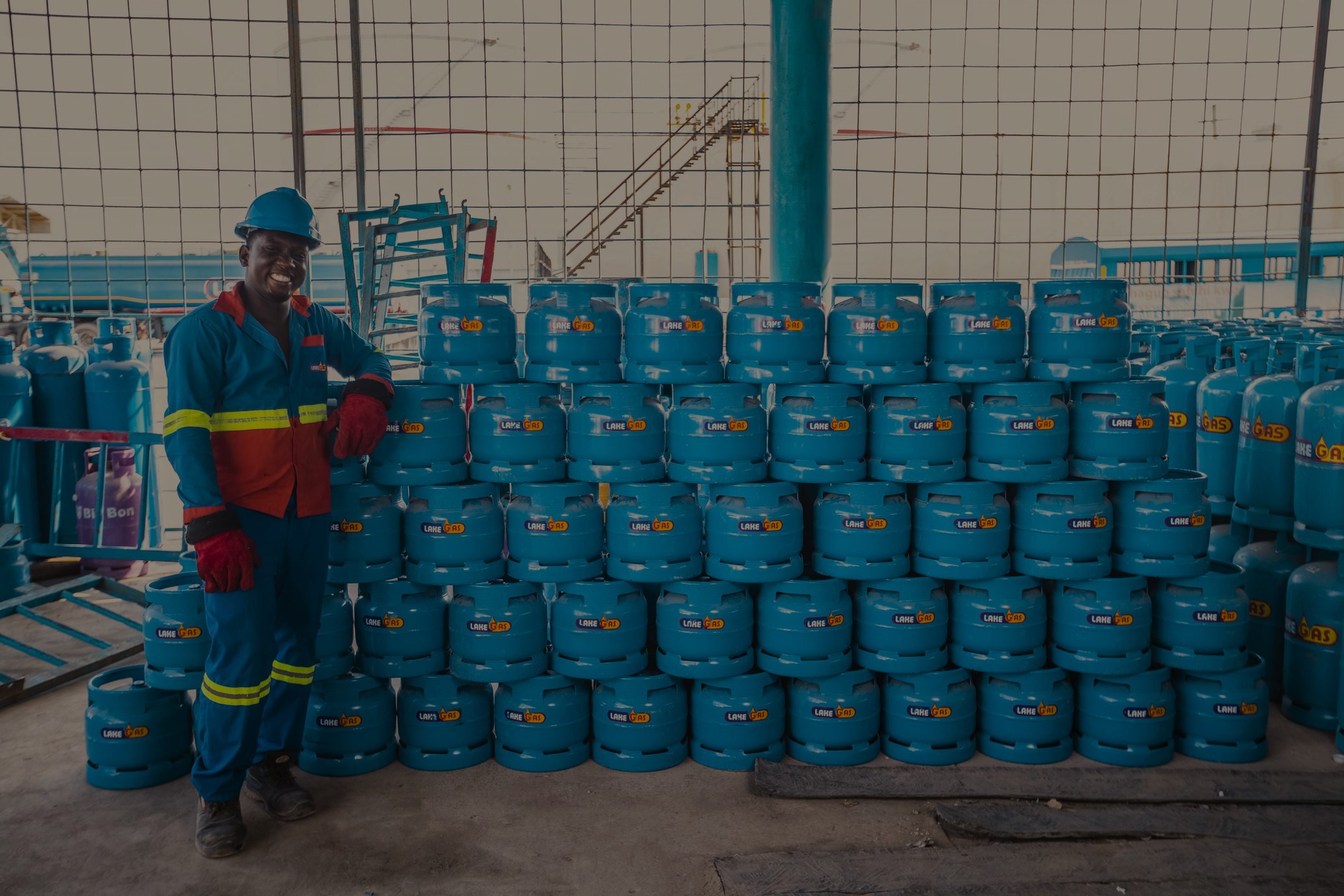Business
Lake Gas Faces Fresh Safety Crisis as Kenya Rejects Second LPG Cargo This Year
Laboratory tests conducted on samples from Tank 2 at Lake Gas Terminal in Vipingo, Kilifi County, revealed dangerous compositional imbalances that could pose significant risks to consumers.

Kenya’s Bureau of Standards has delivered another blow to Tanzanian cooking gas importer Lake Gas Limited, rejecting yet another cargo of liquefied petroleum gas after declaring it unsafe for public consumption.
The latest rejection, formalized on September 10, marks the second time in three months that Kebs has turned away Lake Gas shipments, raising serious questions about the company’s quality control systems and highlighting persistent safety concerns in Kenya’s LPG import sector.
Laboratory tests conducted on samples from Tank 2 at Lake Gas Terminal in Vipingo, Kilifi County, revealed dangerous compositional imbalances that could pose significant risks to consumers. The rejected cargo, sourced through a Sudanese trader, failed critical safety standards with butane levels registering at 75.53 percent against the mandatory minimum of 80 percent, while propane content exceeded acceptable limits at 24.22 percent.
Hassan Abdikadir, representing Kebs’ Coast region inspection manager, explained that the excess propane creates elevated vapor pressure, dramatically increasing the likelihood of gas leaks or cylinder ruptures during transportation and storage. This risk becomes particularly acute in Kenya’s hot climate conditions, where high temperatures can exacerbate pressure buildup in gas containers.
The insufficient butane content presents equally serious concerns, as it reduces combustion stability and leads to incomplete burning. This deficiency not only affects cooking efficiency but also increases carbon monoxide exposure in households, creating potential health hazards for millions of Kenyan families who rely on LPG for daily cooking needs.
The rejection follows a troubling pattern established earlier this year when Lake Gas faced similar scrutiny in June. That earlier incident involved over 12 million kilograms of LPG delivered via the vessel BarumK Gas, which was rejected due to inadequate levels of ethyl mercaptan, an odorant essential for detecting gas leaks.
Kebs officials note that the June rejection was particularly concerning as it involved the equivalent of two million six-kilogram cylinders, sufficient to supply 10 million households. Despite the official rejection, reports emerged of trucks being loaded with the unsafe gas, with at least one vehicle departing for Nairobi amid allegations of political interference.
The recurring safety failures at Lake Gas operations have prompted Kebs to issue stern warnings about the broader implications for Kenya’s clean energy objectives. The standards body expressed concern that repeated rejections of unsafe imports could undermine consumer confidence in LPG safety, potentially slowing household adoption of clean cooking solutions.
The rejected cargo poses risks extending far beyond domestic kitchens. With over 20 LPG fueling stations operating in Nairobi alone and thousands of Uber taxis running on LPG, substandard gas could create widespread safety hazards across the transport sector. Industrial users, including factories and processing plants that rely on LPG for operations, also face potential safety risks from compromised gas supplies.
Lake Gas now faces a critical seven-day window to request a review of the rejection decision. Should the company fail to challenge the ruling, it must re-export the entire consignment under Kebs supervision within 30 days, or face the prospect of having the cargo destroyed at its own expense.
The safety concerns extend beyond the gas composition to the terminal infrastructure itself. Kebs has previously flagged the Lake Gas Vipingo Terminal as unsuitable for handling such operations, citing the absence of a permanent jetty, protective breakwater, and proper offshore discharge zones.
For Lake Gas, the repeated rejections represent not just immediate financial losses but a growing credibility crisis that could affect its long-term operations in the East African market. The company’s ability to address these systemic quality control issues will likely determine its future role in Kenya’s expanding LPG sector.
As Kenya continues to promote clean cooking solutions to reduce reliance on traditional biomass fuels, the Lake Gas incidents serve as a stark reminder that safety standards cannot be compromised in the pursuit of energy accessibility goals.
Kenya Insights allows guest blogging, if you want to be published on Kenya’s most authoritative and accurate blog, have an expose, news TIPS, story angles, human interest stories, drop us an email on [email protected] or via Telegram
-

 Grapevine2 weeks ago
Grapevine2 weeks agoRussian Man’s Secret Sex Recordings Ignite Fury as Questions Mount Over Consent and Easy Pick-Ups in Nairobi
-

 News1 week ago
News1 week agoTHE FIRM IN THE DOCK: How Kaplan and Stratton Became the Most Scrutinised Law Firm in Kenya
-

 Investigations2 weeks ago
Investigations2 weeks agoMulti-Million Dollar Fraud: Three Kenyans Face US Extradition in Massive Cybercrime Conspiracy
-

 Economy1 week ago
Economy1 week agoIran Demands Arrest, Prosecution Of Kenya’s Cup of Joe Director Director Over Sh2.6 Billion Tea Fraud
-

 Business1 week ago
Business1 week agoA Farm in Kenya’s Rift Valley Ignites a National Reckoning With Israeli Investment
-

 Africa2 weeks ago
Africa2 weeks agoFBI Investigates Congresswoman Ilhan Omar’s Husband’s Sh3.8 Billion Businesses in Kenya, Somalia and Dubai
-

 Grapevine5 days ago
Grapevine5 days agoA UN Director Based in Nairobi Was Deep in an Intimate Friendship With Epstein — He Even Sent Her a Sex Toy
-

 News2 weeks ago
News2 weeks agoTragedy As City Hall Hands Corrupt Ghanaian Firm Multimillion Garbage Collection Tender
















